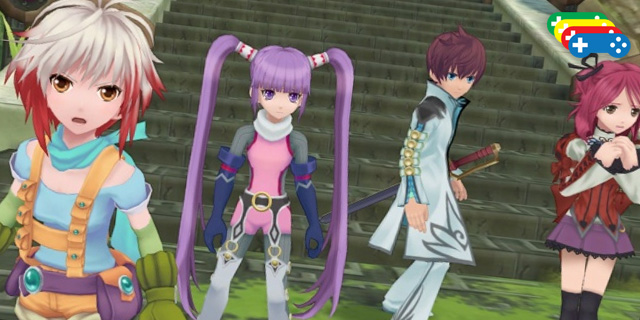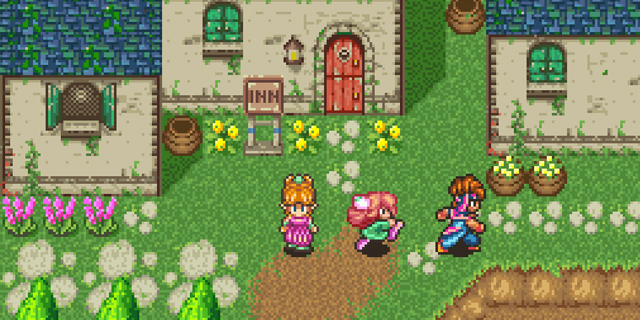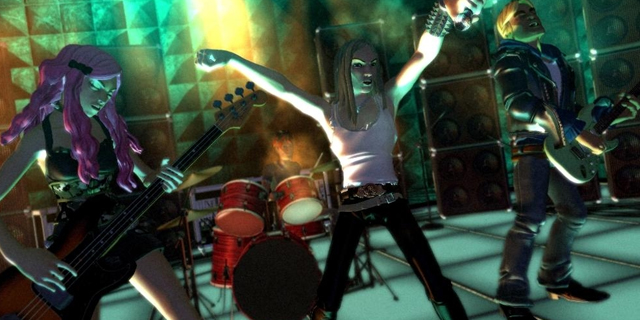
Most multiplayer games are designed to be played in a single evening. This makes a lot of sense, as it can be a huge headache to organize multiple play gatherings, especially with the exact same configuration of players, and an experience that’s easier to get into generally has a much better chance of success.
If you go through the effort, though, longer multiplayer experiences can be truly memorable and magical in ways that one-off party play just can’t.
I’m still playing through last year’s Tales of Graces f with a few friends of mine. It’s taken months and months, as we only get in a few hours of play per night, and we only play once every few weeks. That’s okay, though; it’s what we do. We’ll often start after our usual weekly game nights start to die down, as energies are just a bit depleted and we’re ready to settle into a game with a significant chunk of downtime. We trade off general navigation duties, and jump into combat when the opportunity arises. We’re always the same character, except for when party changes deprive us of our original choices, and we’ve developed roles and tactics to help us through the tougher encounters.
I’ve played other Tales games and enjoyed them (including the newest, Tales of Xillia), but never before have I been able to recount to you the exact moment-to-moment events of the story, or had classic stories of how we lost a boss fight over and over until we did just the right sequence of things at 2 a.m. just as we were going to give up. Only a few games can take this role in your life at any given time, but it’s a powerful, significant one, and if you don’t have anything like that in your own game life, you really should.

There’s always a heated debate about which RPG on the Super Nintendo is the best. It’s warranted; the system produced more than its fair share of classics, like Final Fantasy VI, Chrono Trigger, Earthbound and Super Mario RPG. But if you ask me, I have to say Secret of Mana. It’s not even a choice for me, it’s a reflex. And that’s weird, since I missed it at the time; I didn’t get to play it until its Virtual Console release in 2008. But when I did, I played with the full three players, taking on the game segment by segment. By the end, we had dumb character nicknames, a rehearsed way of getting around areas most efficiently and an irrational fixation with saying the name “Flammie” in as elongated a fashion as we could muster.
We also found a depth to the mechanics that’s just not there when playing solo. The game has ledges to fire projectiles from, but without teammates to lure enemies into place, they’re not particularly useful. The spells are key to defeating bosses, but computer-controlled companions don’t offer particularly effective protection to give you time to cast them. Both the game and our experience of playing it were better because we did so together.
As I said earlier, though, games just aren’t normally designed for this sort of thing. Even games with long-term progression, like Borderlands or Diablo, are made to jump in and out of online play with others. It’s possible to always play with the same group, but you’d be hard-pressed to find someone who doesn’t occasionally give it a play solo or with a player missing. It’s that consistency, though, that makes it special. If you’re having to catch people up, both in level and narrative, it can often be more trouble than it’s worth to develop this connection at all.

You can get this experience outside of RPGs. After the release of the first Rock Band, I excitedly assembled a few friends and set us off to practice. Our Rock Band band, The Smash Bros, topped very few of the leaderboards, but we’d occasionally break through into the top 100 and celebrate. Why? Because this was different. This wasn’t like just randomly picking up instruments at a party, and it also wasn’t because we were particularly naturally talented at the game. We got better because we had band practice, getting better at songs by the week and knowing just exactly when to trigger overdrive and which players had the time and opportunity to keep track of it on which songs.
Rock Band 2 and 3 were significant improvements, but I don’t have a Behind the Music-like detailed saga of playing those. Sure, there was the one time we managed a full seven-player Bohemian Rhapsody (do that if you can), or the evening we took on the last few tours to finish the game’s campaign. But The Orange Machine, with its ever-changing lineup and lack of chemistry, couldn’t reach the heights of my experiences with The Smash Bros.
Those who play tabletop, storytelling role-playing games like Pathfinder and Dungeons & Dragons know this feeling well. Their popularity doesn’t stem with some sort of fascination with the games’ combat systems and mechanical elegance. They come from having this camaraderie that you only develop from meeting in person consistently over months and years. Video games can offer this feeling too, if only sparingly, and you should seek out the opportunity to give it a try yourself.



















